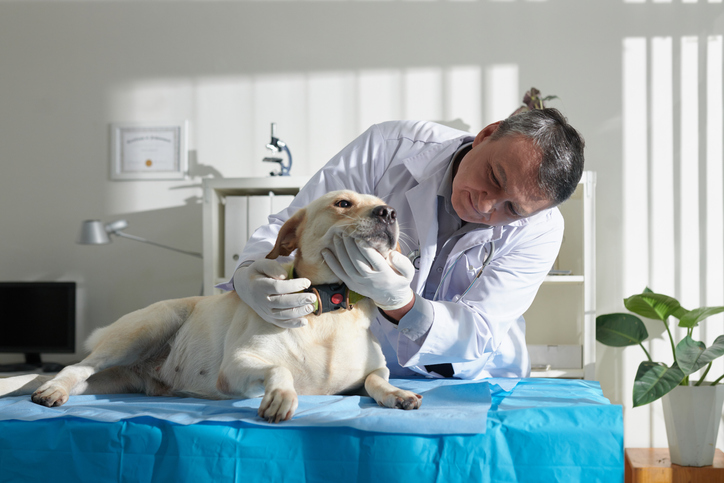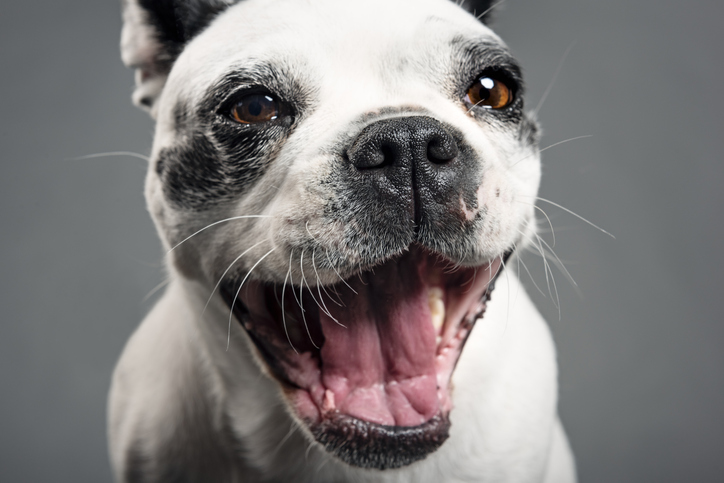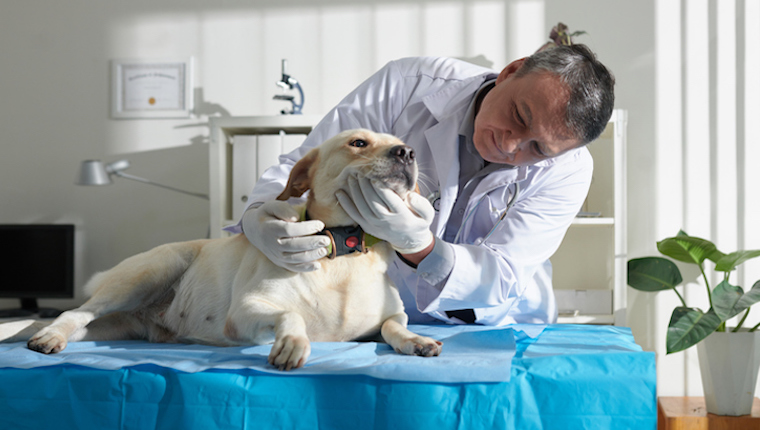
Paralysis of the jaw in dogs is a medical condition that prevents a dog from being able to close their jaw. The condition can lead to eating problems.
Unfortunately, the precise cause of the condition is unknown. But thankfully supportive care can help dogs who develop the condition.
Technically, the condition is also known as trigeminal neuritis in dogs.
If you see the signs of the condition in your dog, then get to a veterinarian for a proper diagnosis and treatment.
Here’s what you should know about the symptoms, causes, and treatments for the condition.
Symptoms of Paralysis of the Jaw in Dogs
The condition produces a number of symptoms. For example, some of the most common symptoms include:
- Not being able to close the mouth
- Problems eating
- Drooling
- Loss of feeling in the face
- Acting lethargic
- Not being able to blink
Causes of Paralysis of the Jaw in Dogs

The cause of the condition is unfortunately unknown. Although autoimmune problems are suspected to play a factor in causing the condition. Additionally, infections may be capable of causing the condition in some cases.
Treatments for Paralysis of the Jaw in Dogs
Firstly, your vet will ask about your dog’s symptoms. Secondly, your vet will ask about any circumstances where your dog could have injured their jaw.
Thirdly, your vet will carry out a full physical examination. Blood and urine tests will be taken. The subsequent results of the tests can be used to rule out other conditions, including rabies.
Additionally, X-rays can be used to help confirm the condition.
Generally, treatment focusses on supportive care. For example, you may need to take steps to help your dog eat and drink, such as using a syringe in the corner of the mouth to deliver food. Your vet can guide you through this.
Thankfully, the condition often clears up on its own after around two-to-four weeks. Although your dog may need to practice facial exercises while they recover. This is to build up the jaw muscles again. Your vet can help suggest appropriate exercises for your dog.
Have you ever cared for a dog who suffered from this condition? How did your vet help your dog recover? Let us know in the comments section below.









